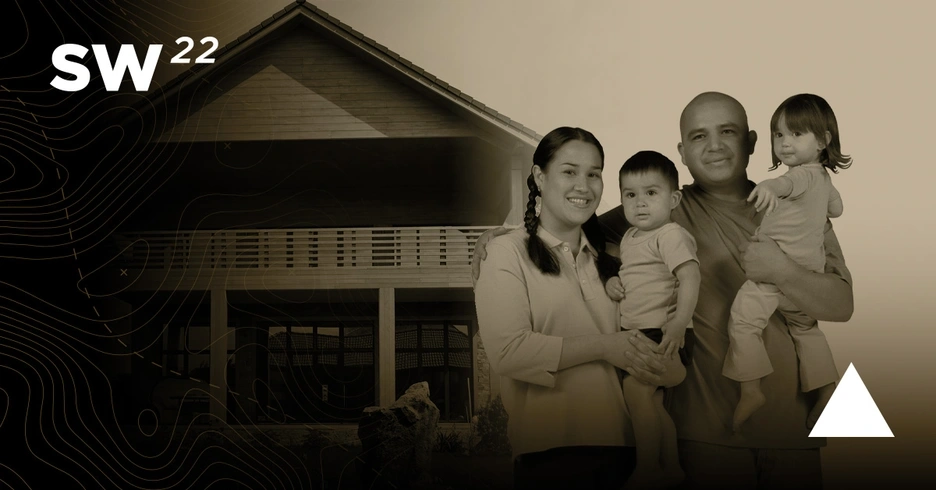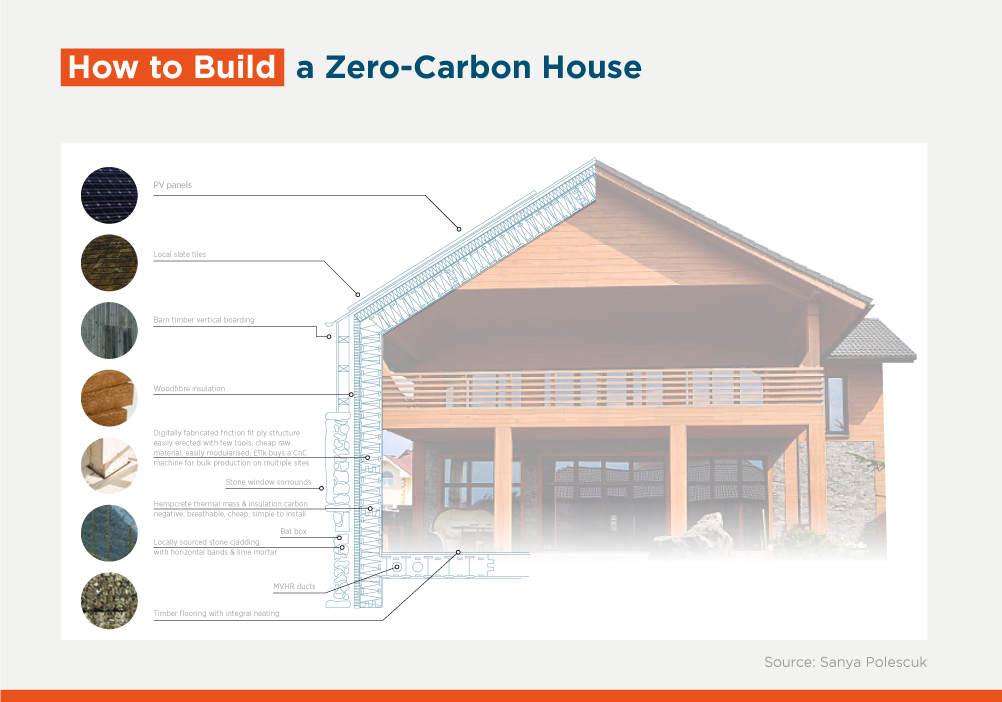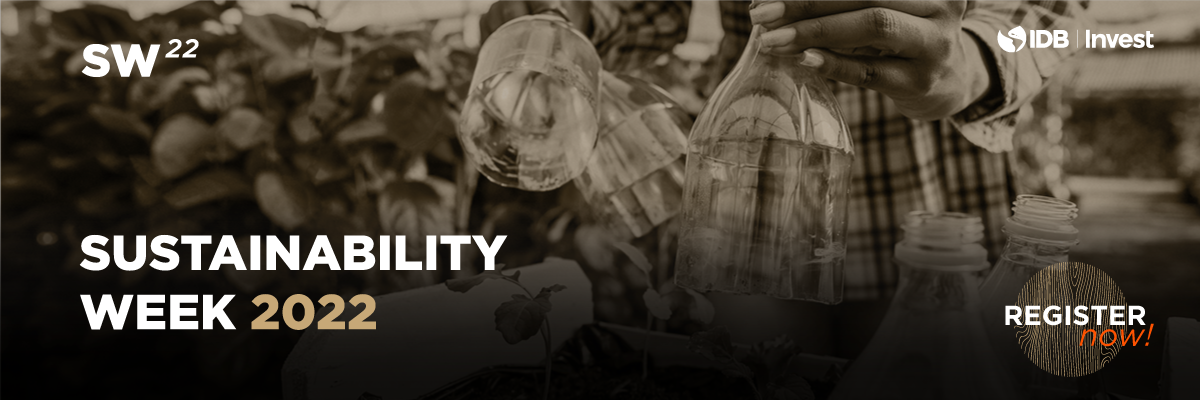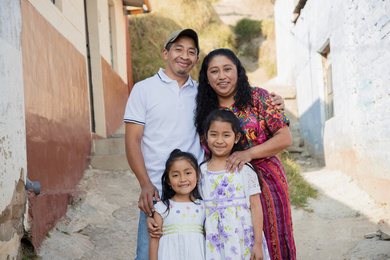Coming Soon: Zero-Carbon Affordable Housing

It’s not hard to find news stories about such and such millionaire who converted a mansion into a zero-carbon emitter through renewable energy, energy efficiency systems, use of carbon offsets, and the like. That’s not really a game changer in the fight against climate. Affordable, zero-carbon housing that anyone can buy is.
As the entire world transitions to more sustainable economic and construction models, the idea of zero-carbon for the masses is quickly gaining traction. Single-family houses with high energy efficiency may be a luxury that not all can afford, but affordable zero-carbon houses may have a massive impact on pollution patterns in many regions, including Latin America and the Caribbean (LAC).
Zero-carbon houses share a few common design features, including strong building insulation to trap heat in winter and cold in summer so that less energy is needed to keep comfortable temperatures inside and solid water use and recycling systems to reduce water consumption and avoid water waste. Cheaper, centralized heating systems, communal waste management, energy storage solutions, as well as smart appliances, are also frequent features. The construction of this type of house reduces the generation of emissions. In addition, it generates benefits in health, equity, and economic prosperity in the communities.

At the same time, since the construction of zero-carbon houses also involves carbon emissions, carbon offsetting projects – for example, through reforestation – are conducted to offset these emissions and stay true to the zero-carbon ideal. Particular attention to the surroundings, in order to minimize the impact of construction by using materials that reduce the carbon emissions associated with their manufacture and transportation and maximize the availability of natural resources within the design, especially natural lighting and ventilation, is an added characteristic of these projects.
This may sound like a pipe dream, but rather it’s something that is becoming a reality in LAC. For instance, in Mexico, there’s already a residential project that deserved the prestigious EDGE Zero Carbon badge: “Villas del Fresno,” consisting of 1,639 low-income homes in the greater metropolitan area of Mexico City, which was developed with the support of Paladin Realty as the main investor.
On top of that, in December last year IDB Invest announced an investment of up to $10 million in the first zero carbon affordable housing fund in the region. Paladin Realty itself, given its vast experience on the subject and its solid track record, manages the fund.
This support entails a $5 million equity investment complemented by a $5 million blended finance equity investment with resources mobilized from the Clean Technology Fund (CTF), one of two multi-donor trust funds under the Climate Investment Funds (CIF) framework. This will add an extra incentive for the fund manager to achieve increasing levels of sustainability.
The deal aims to increase the availability of capital for the development of sustainable housing, executed by mid-sized developers and targeted to households of Mexico, Colombia, Brazil, and Peru, and is just the beginning in what should be a growing effort to provide much-needed, climate-compliant affordable housing across the region.
Overall, Paladin’s fund has a target size of $50-$100 million that will be invested in building housing for households earning less than each country’s Gross National Income per capita. All the housing financed by this fund complies with the IFC’s Excellence in Design for Greater Efficiencies (EDGE) standards, a green building certification system focused on sustainable development.
Specifically, at least 75% of the fund’s projects will reach the IFC’s highest level of “EDGE Zero Carbon.” This a pretty high standard, meaning that any energy requirements not mitigated through extensive sustainable design features will be offset by the purchase of carbon credits – obtained through carbon offsetting projects.
This positions the fund as the first of its kind and sets a new standard in housing construction in the region. Even more importantly, setting EDGE Zero Carbon certification targets for the fund’s investment portfolio can serve as an example for other private sector players in LAC’s housing sector. This investment intends to demonstrate that Net Zero carbon housing is an achievable goal and a viable business model, which would set a new standard in housing construction going forward.
U.S.-based Paladin, recently named as an EDGE Champion by the IFC for its commitment to sustainable housing, has already certified 13 projects and nearly 5,000 units over the past several years. The fund will be advised by IDB Invest in the EDGE Zero Carbon certification process, and these services will include a gender, diversity and inclusion (GDI) advisory to augment Paladin's internal policies for equal opportunity hiring and GDI.
The deal with Paladin was among IDB Invest’s flagship projects in 2021, a year in which IDB Invest surpassed its targets with investment commitments reaching $6.3 billion, on top a $3 billion in core mobilization, a record milestone.
This blogpost is published in connection with IDB Invest Sustainability Week 2022, to be held between June 28 and July 1 in the city of Miami. Learn here how to register to participate, either in person or virtually.

LIKE WHAT YOU JUST READ?
Subscribe to our mailing list to stay informed on the latest IDB Invest news, blog posts, upcoming events, and to learn more about specific areas of interest.
Subscribe



